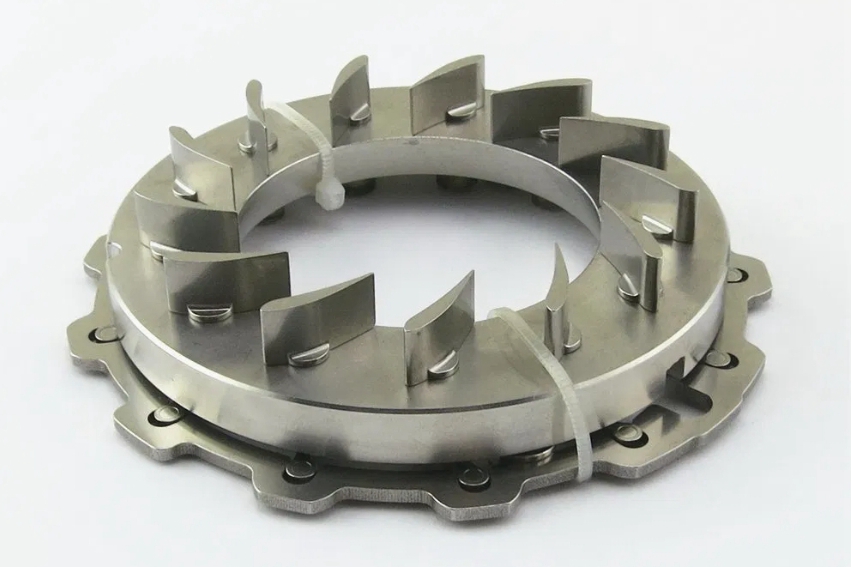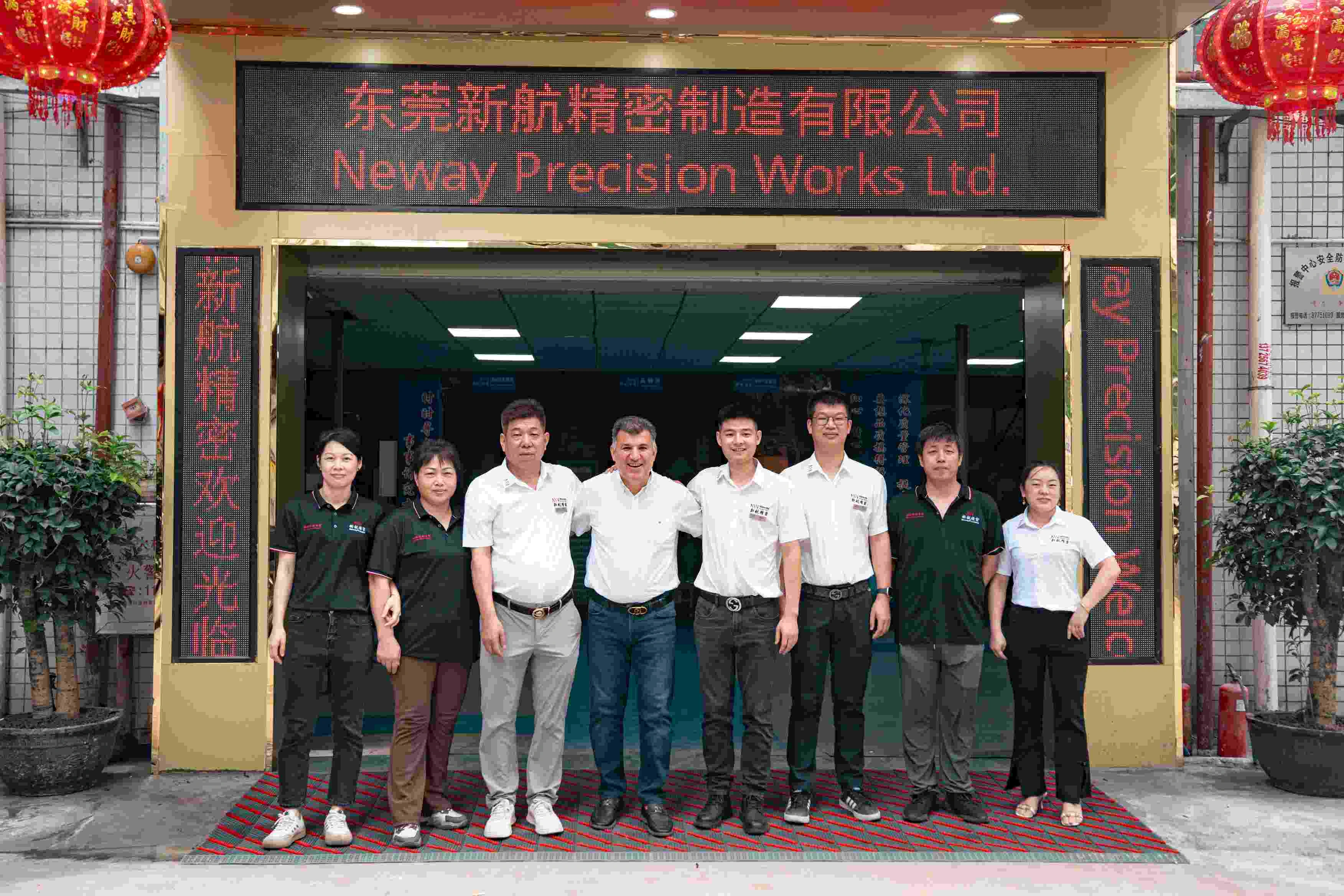Turbine Disc Precision Crafted with Inconel Alloy via Advanced Forging Techniques
Introduction
Inconel alloys, renowned for superior high-temperature strength and oxidation resistance, are critical materials for turbine discs used in aerospace and industrial power generation. Utilizing advanced precision forging techniques, Neway AeroTech delivers turbine discs meeting strict aerospace standards, achieving exceptional dimensional tolerances of ±0.05 mm and tensile strengths surpassing 1200 MPa.
Employing controlled isothermal and directional forging at elevated temperatures (950-1150°C), Neway ensures optimal grain structure refinement, providing turbine discs with uniform microstructures and significantly improved fatigue resistance for demanding operational conditions.
Core Manufacturing Challenges of Inconel Alloy Turbine Discs
Manufacturing turbine discs from Inconel alloys like Inconel 718, Inconel 625, and Inconel 713C involves overcoming significant technical challenges:
High deformation resistance at forging temperatures requiring specialized forging presses.
Achieving strict dimensional accuracy (±0.05 mm) and surface finishes (Ra ≤1.6 µm).
Controlling grain size and preventing microstructural defects during hot deformation.
Consistently maintaining alloy purity and mechanical integrity through precise thermal management.
Detailed Explanation of Inconel Alloy Forging Process
The advanced forging process for Inconel alloy turbine discs involves:
Billet Preparation: Heating Inconel billets uniformly at 950-1150°C temperatures, ensuring optimal forgeability and grain refinement.
Directional Forging: Precise control of deformation direction and strain rates to enhance grain orientation, significantly improving mechanical properties.
Isothermal Forging: Conducting deformation within dies maintained at a constant temperature (±5°C variance) to achieve uniform microstructural characteristics.
Controlled Cooling: Slow and controlled cooling at approximately 20-30°C/hour minimizes residual stresses and ensures grain size stability.
Heat Treatment: Implementing solution annealing (typically 980-1050°C), followed by rapid quenching and age-hardening at 720-780°C, achieving tensile strengths >1200 MPa.
Precision Machining: High-precision CNC machining to meet aerospace dimensional tolerances of ±0.01 mm for assembly accuracy.
Comparison of Mainstream Forging Processes for Inconel Turbine Discs
Forging Method | Dimensional Accuracy | Surface Finish (Ra) | Grain Structure Control | Mechanical Properties | Cost Efficiency |
|---|---|---|---|---|---|
Isothermal Forging | ±0.05 mm | ≤1.6 µm | Excellent | Superior | Medium |
Directional Forging | ±0.1 mm | ≤3.2 µm | Excellent | Superior | Medium-High |
Precision Die Forging | ±0.2 mm | ≤3.2 µm | Good | Good | High |
Free Forging | ±0.5 mm | ≤12.5 µm | Moderate | Moderate | Low |
Manufacturing Process Selection Strategy
Selecting the optimal forging method for Inconel turbine discs involves:
Isothermal Forging: Preferred for turbine discs requiring precise dimensional tolerances (±0.05 mm), uniform grain structures, superior fatigue resistance, and consistent tensile strengths exceeding 1200 MPa.
Directional Forging: Ideal for discs benefiting from enhanced directional grain flow, significantly improving thermal fatigue and creep deformation resistance.
Precision Die Forging: Suited for high-volume manufacturing where balanced dimensional precision (±0.2 mm) and mechanical property consistency are essential.
Free Forging: Applicable for preliminary shaping and lower-volume parts, requiring substantial subsequent machining to achieve final tolerances.
Material Analysis Matrix
Inconel Alloy | Max Service Temp (°C) | Tensile Strength (MPa) | Yield Strength (MPa) | Fatigue Resistance | Oxidation Resistance | Typical Applications |
|---|---|---|---|---|---|---|
700 | 1375 | 1100 | Excellent | Superior | Turbine discs, compressor components | |
815 | 965 | 490 | Good | Superior | Exhaust turbine discs, hot-section components | |
950 | 1200 | 900 | Excellent | Exceptional | High-temp turbine discs, blades | |
820 | 1250 | 850 | Very Good | Excellent | Compressor discs, springs | |
900 | 1150 | 880 | Excellent | Superior | Hot-section discs, combustor liners | |
650 | 1250 | 1000 | Good | Excellent | Low-temp turbine discs, shafts |
Material Selection Strategy
Strategies for selecting Inconel alloys for turbine disc applications:
Inconel 718: Primary choice for turbine discs and compressor rotors needing excellent fatigue strength (1375 MPa tensile), good weldability, and reliable performance at moderate temperatures up to 700°C.
Inconel 625: Optimal for exhaust turbine discs and hot-section components exposed to severe oxidation environments, maintaining strength (965 MPa tensile) up to 815°C.
Inconel 713C: Suitable for high-temperature turbine discs and blades requiring exceptional tensile strength (1200 MPa), fatigue resistance, and oxidation stability at temperatures approaching 950°C.
Inconel X-750: Selected for compressor discs and mechanical springs due to outstanding tensile strength (1250 MPa), fatigue life, and reliable service up to 820°C.
Inconel 939: Ideal for combustor liners and hot-section discs demanding superior oxidation resistance, mechanical integrity (1150 MPa tensile), and service stability at temperatures up to 900°C.
Inconel 725: Recommended for low-temperature turbine discs and drive shafts, offering excellent yield strength (1000 MPa) and corrosion resistance in less thermally aggressive conditions (up to 650°C).
Key Post-processing Technology
Essential post-processing steps include:
Hot Isostatic Pressing (HIP): Eliminates internal defects, enhancing component density (>99.9%) and fatigue strength by up to 30%.
Thermal Barrier Coating (TBC): Ceramic coatings (100-250 µm thickness) reduce surface temperatures, increasing component life significantly.
Precision CNC Machining: Achieves aerospace-required tolerances of ±0.01 mm, essential for accurate turbine assembly.
Controlled Heat Treatment: Tailored annealing and aging cycles enhance microstructure, tensile strength, and creep resistance.
Industry Application and Case Analysis
Aerospace Case Study: Inconel 718 Turbine Disc
Neway AeroTech successfully provided Inconel 718 turbine discs to a leading aerospace manufacturer, using advanced isothermal forging and HIP:
Operating Temperature: Up to 700°C continuous
Fatigue Life Improvement: 40% increase
Dimensional Accuracy: ±0.02 mm achieved consistently
Certification: Fully compliant with aerospace standard AS9100
FAQs
Why is Inconel alloy preferred for turbine disc manufacturing?
What forging techniques optimize Inconel alloy performance?
How does isothermal forging improve turbine disc durability?
What dimensional precision can be achieved with Inconel alloy forging?
Which post-processing techniques enhance turbine disc longevity?

